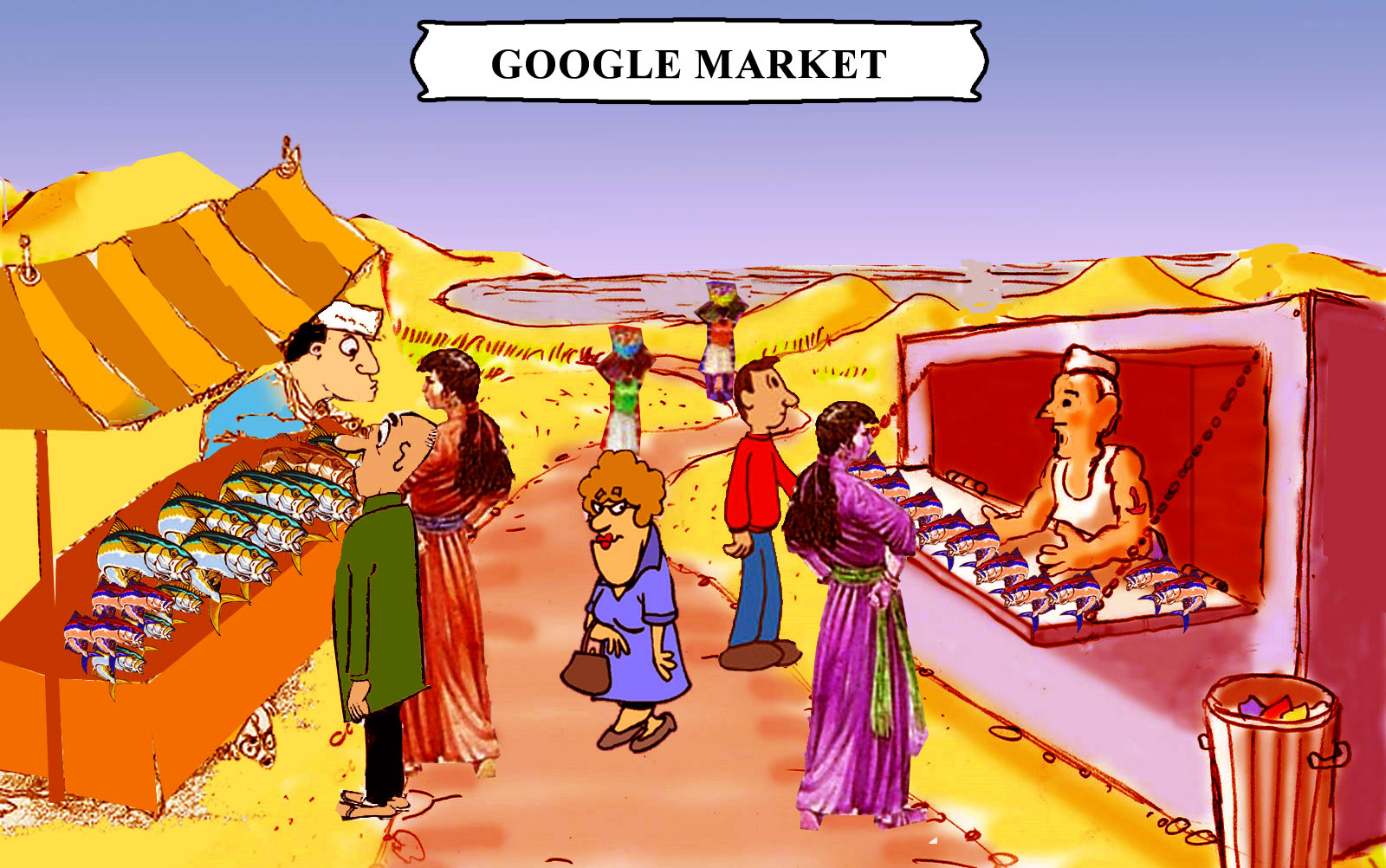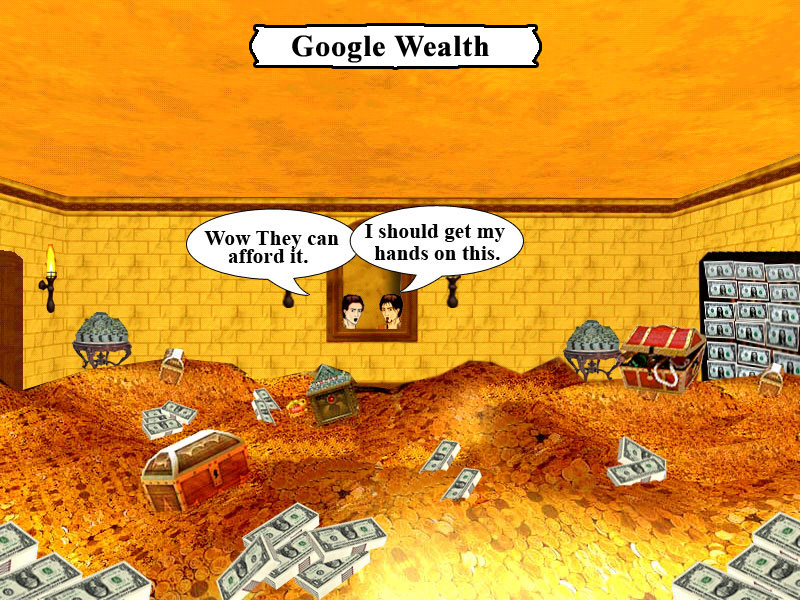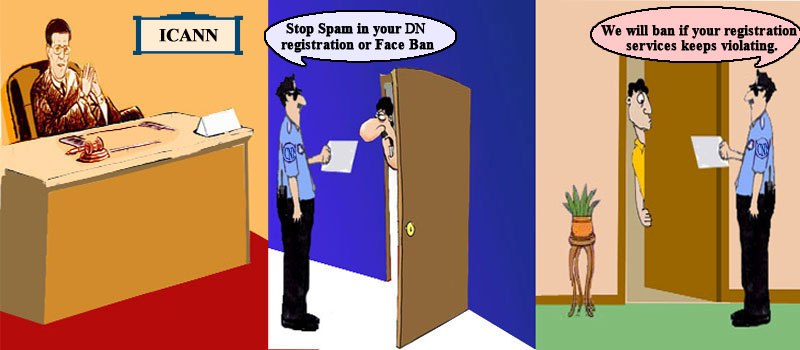Webmaster News
No Longer Have Badware – Badware reinclusion request
Badware is very harmful as the computer gets infected & for this purpose Google has recommended the following suggestions for people who are dealing with badware:
1) If you have badware, it usually means that your web server, your website, or a database used by your website has been compromised. Google has a nifty post on how to handle being hacked. You should be very careful when inspecting for malware on your site so as to avoid exposing your computer to infection.
2) Once everything is clear and dandy, you can follow the steps in our post about malware reviews via Webmaster Tools. Please note the screen shot on the previous post is outdated, and the new malware review form is on the Overview page and looks as shown below:
(Pic.)
3) Lastly, if you believe that your rankings were somehow affected by the malware, such as compromised content that violated the Webmaster Guidelines [i.e. hacked pages with hidden pharmacy text links], you should fill out a reconsideration request. To clarify, reconsideration requests are usually used for when you notice issues stemming from violations of our Webmaster Guidelines and are separate from malware requests.
If you have any additional queries, you can review their documentation or can post to the discussion group with the URL of your site. This updated feature in webmaster tools is very efficacious in discovering & fixing any malware related problems.
Source: Google Webmaster Central Blog
Interesting post in webmasterworld on how punctuation in keywords affect results.
Andy of webmasterworld made an interesting post on how punctuation in keywords affects search results and search engine rankings
Read the post
“Various punctuation characters have a noticeable impact on search results – mostly from a searcher perspective. As a webmaster, you may find that your users include punctuation in some keywords, and so it can be of use to know what the effect on the results they see is. And besides, knowing how to search Google is one step towards understanding how Google works. This is a spot check of the current handling of punctuation by Google.
Indexed punctuation
Key_word
Underscores are treated as a letter of the alphabet, which is why you can search for an underscore directly. Use underscores in content if your visitors include an underscore when searching (e.g. if you had a programming site).
Key&word
Ampersands or ‘and symbols’ have fairly unique handling. They’re both indexed and also treated as the equivalent of word “and”. If there are no spaces separating the symbol and the adjacent letters, the search results are an approximate equivalent of combining results for [“key and word”] and [“key & word”] (note the phrase matching). Use ampersands in copy as is natural for your target audience.
Explicit search operators
Many punctuation characters are explicit search operators, with a documented effect on results. Search operators are not indexed (or at least, they can’t be searched for) and so are usually treated as word separators when found within website copy:
Key¦word
An (unbroken) pipe character is the equivalent of boolean OR: a search for [key OR word]. It can be a handy shortcut when conducting complex queries.
Key”word
A double quote triggers an exact or phrase search for the proceeding words (whether you include a closing double quote or not). So in this instance, it’s the equivalent of a search for [key word] since a single word can’t be a phrase. [“key word] is the same as searching for [“key word”].
Key*word
An asterisk is a wildcard search for zero or more words: [key … word]. Putting numbers on both sides will trigger the calculator. Occasionally, Google delivers (strange!) results if you search for an asterisk directly.
Key~word
A tilde triggers Google’s related word operator – in this instance, a search for both ‘key’ and ‘word’, as well as other words related to ‘word’ – like ‘Microsoft’, ‘dictionary’ and others.
Search operator oddities
Key-word
A hyphen (as is probably consistent with language use) returns a mix of results for the words both used separately, and joined together – somewhere between [key word] and [keyword]. It’s the preferred word separator within website URLs, since other punctuation characters that are treated as a word-separator have specific functions within a URL.
Others
A few punctuation characters have a strange impact on results – returning far fewer results than for either separated or concatenated words. They are neither known search operators, or indexed characters. These are . / \ @ = :
As far as I’m, aware, all other punctuation characters are treated as simply a space or word separator.
So, do I have too much time on my hands? Probably. But why not confuse whoever looks at Google’s search logs by trying a few punctuation searches yourself? 😉
Do you know any punctuation with an effect on results not discussed here, or more about the effect on results of the punctuation above? “
Adobe provides technology to Google and yahoo to crawl flash
Adobe in their recent press release said they have given Google and Yahoo their technology to access and crawl RIAs and flash files. Till now search engines had lot of restrictions crawling flash content but now we can see a lot of improvement and lot better crawling by Search Engines.
“Adobe Systems Incorporated (Nasdaq:ADBE) today announced the company is teaming up with search industry leaders to dramatically improve search results of dynamic Web content and rich Internet applications (RIAs). Adobe is providing optimized Adobe® Flash® Player technology to Google and Yahoo! to enhance search engine indexing of the Flash file format (SWF) and uncover information that is currently un discoverable by search engines. This will provide more relevant automatic search rankings of the millions of RIAs and other dynamic content that run in Adobe Flash Player. Moving forward, RIA developers and rich Web content producers won’t need to amend existing and future content to make it searchable — they can now be confident it can be found by users around the globe.”
Read press release here
Mattcutts reiterates Yahoo Directory has plenty of Pagerank Internally.
Webmaster world has an interesting discussion about why Yahoo Directory is showing a grey bar for lot of pages. We already discussed here why a webpage has Grey Pagerank display. Most probably the reasons for Grey Pagerank is one of the reason we addressed in our article. Now webmaster world members are thinking Google has purposely imposed a Grey bar penalty for yahoo directory to reduce the Competition. For major sites like Yahoo directory Grey pagerank display could just be the problem inner pages are facing for many established sites. Google has imposed some sort of automated filter for inner pages of a site if the pages don’t have good external links or doesn’t feel its valuable. We see this across many of our pages in our site. I feel this is just temporary and Matt Cutts has cleared this up.
Matt Cutts replied this thread ” It looks like it’s just a matter of canonicalizing upper vs. lowercase as to why some of the subdirectories look the way they do in the toolbar. I just wanted to reiterate that the Yahoo Directory has plenty of PageRank in our internal systems.”
Sergey plans his space invasion
Losing Viacom Lawsuit might cost 250$ Billion for Google.
Couple of weeks back we reported on the lawsuit by Viacom on Youtube and Google for allowing its copyrighted videos to be posted on Youtube.
Google responded strongly in their counter filing in Court. Google’s filing says “By seeking to make carriers and hosting providers liable for Internet communications, Viacom’s complaint threatens the way hundreds of millions of people legitimately exchange information, news, entertainment, and political and artistic expression,” . We strongly supported Google’s claim.
Doing further research on Viacom’s claim we were able to find some hard core facts. What currently looks like a small lawsuit might burst into a major Nuke explosion if Google ever looses the lawsuit. Viacom claims Youtube has more than 150,000 copyright videos and it claims a Billion dollar for it. So what happens if Google wins this lawsuit i am sure other companies won’t sit quite.
Companies like CBS, NBC will jump in and will claim their own damages like this Google has to faces lots of companies around the world. I am sure just a lost lawsuit in Youtube will cost Google 50 Billion dollars if other companies claim their share.
Google is a search engine which was developed using other web site’s information in their search results. They do have a cache of copyrighted pages crawled on the web so if Youtube is wrong then Google search is wrong too and with all the billions of sites out there Google will go Bankrupt. I estimate Google will need to pay 200 Billion Dollars. Google news also faced a recent major lawsuit from Belgium newspaper group. They want more than 75 million dollars since their news appeared in Google news.
Its Seems Everyone needs a piece of the Google PIE.
Look the following setup of images i tried to portray the 2 lawsuits.
This image shows Google Kingdom and does it look like Sergey brin on the King’s chair 😉
This is Google country guys fishing in Viacom territory. Is Google responsible for this?
Google country guys selling fishes that are taken from Viacom territory river.
This image criticises the Belgium Newspaper group. Goats from the Belgium Newspaper group territory are grazing in Google’s territory.
Google’s Market share / wealth
Viacom and Belgium Newspaper claim
Vijay
ICANN Sends out warning to registrars with Lot of spam
Recently ICANN sent out warning to Domain registrars who handle lot of spam domains. Worst spam offenders are found out by a survey and they are sent out notices to stop spam in their registration or face ban.
Announcement here
“ICANN has sent enforcement notices and notices of concern to certain registrars, including those reported this week as being the registrars for the majority of websites advertised in spam emails.
Earlier this week, an investigation by KnujOn, widely reported online, publicly identified 10 registrars as being the companies used to register the majority of domain names that have since appeared in spam email messages.
More than half of those registrars named had already been contacted by ICANN prior to publication of KnujOn’s report, and the remainder have since been notified following an analysis of other sources of data, including ICANN’s internal database.
With tens of millions of domain names in existence, and tens of thousands changing hands each day, ICANN relies upon the wider Internet community to report and review what it believes to be inaccurate registration data for individual domains. To this end, a dedicated online system called the Whois Data Problem Report System (“WDPRS”) was developed in 2002 to receive and track such complaints.
“ICANN sends, on average, over 75 enforcement notices per month following complaints from the community. We also conduct compliance audits to determine whether accredited registrars and registries are adhering to their contractual obligations,” explained Stacy Burnette, Director of Compliance at ICANN.** “Infringing domain names are locked and websites removed every week through this system.”
Although the majority of registrars offer excellent services and contribute to the highly competitive market for domains, ICANN’s compliance department has developed an escalation process to protect registrants and give registrars an opportunity to cure cited violations before ICANN commences the breach process.
However, while registrars are responsible for investigating claims of Whois inaccuracy, it is not fair to assume a registrar that sponsors spam-generating domain names is affiliated with the spam activity. A distinction must be made between registrars and an end user who chooses to use a particular domain name for illegitimate purposes.
“But if those registrars, including those publicly cited, do not investigate and correct alleged inaccuracies reported to ICANN, our escalation procedure can ultimately result in ICANN terminating their accreditation and preventing them from registering domain names,” Ms Burnette said. “
Theplanet datacenter restored in batches
We reported here about the planet datacenter catching fire which resulted in about 9000 active servers going offline. It seems now they restored power and all the servers are back online. Official blog updates here service-update.theplanet.com
Power in H1 Phase 1 has been restored. We are starting to turn customer servers on in batches.
Theplanet’s datacentre – Largest dedicated server provider down
The planet’s main datacenter is down due to fire . According to their official update there was an explosion that caused due to a short circuit and that no one was injured and no data of customers were lost.
Update Note from them
“This evening at 4:55pm CDT in our H1 data center, electrical gear shorted, creating an explosion and fire that knocked down three walls surrounding our electrical equipment room. Thankfully, no one was injured. In addition, no customer servers were damaged or lost. We have just been allowed into the building to physically inspect the damage. Early indications are that the short was in a high-volume wire conduit. We were not allowed to activate our backup generator plan based on instructions from the fire department. This is a significant outage, impacting approximately 9,000 servers and 7,500 customers. All members of our support team are in, and all vendors who supply us with data center equipment are on site. Our initial assessment, although early, points to being able to have some service restored by mid-afternoon on Sunday. Rest assured we are working around the clock. We are in the process of communicating with all affected customers. we are planning to post updates every hour via our forum and in our customer portal. Our interactive voice response system is updating customers as well. There is no impact in any of our other five data centers.”
As you know, we have vendors onsite at the H1 data center. With their help, we’ve created a list of equipment that will be required, and we’re already dealing with those manufacturers to find the gear. Since it’s Saturday night, we do have a few challenges. We are prioritizing issues as follows:
Getting the network up at H1 is first and foremost. We’re pulling components from our five other data centers – including Dallas – which will be an all-night effort.
Getting power back to the data center is key, though it is too early to establish success there.
Because Server Command is in H1, our legacy EV1 customers are blinded about this incident. We are in the process of moving the Server Command servers to other Houston data centers so that we’re able to loop them into communications.
We absolutely intend to live up to our SLA agreements, and we will proactively credit accounts once we understand full outage times. Right now, getting customers back online is the most critical.
More updates go here
Google has more than 200,000 Servers
According to a interview with Google fellow Dean its estimated Google has more than 200,000 servers in various of its datacenter around the Globe.
“Google doesn’t reveal exactly how many servers it has, but I’d estimate it’s easily in the hundreds of thousands. It puts 40 servers in each rack, Dean said, and by one reckoning, Google has 36 data centers across the globe. With 150 racks per data center, that would mean Google has more than 200,000 servers, and I’d guess it’s far beyond that and growing every day. “
Blogroll
Categories
- 2013 seo trends
- author rank
- Bing search engine
- blogger
- Fake popularity
- google ads
- Google Adsense
- google fault
- google impact
- google Investigation
- google knowledge
- Google panda
- Google penguin
- Google Plus
- Google webmaster tools
- Hummingbird algorithm
- infographics
- link building
- Mattcutts Video Transcript
- Microsoft
- MSN Live Search
- Negative SEO
- pagerank
- Paid links
- Panda and penguin timeline
- Panda Update
- Panda Update #22
- Panda Update 25
- Panda update releases 2012
- Penguin Update
- Sandbox Tool
- search engines
- SEO
- SEO cartoons comics
- seo predictions
- seo techniques
- SEO tools
- seo updates
- social bookmarking
- Social Media
- SOPA Act
- Spam
- Uncategorized
- Webmaster News
- website
- Yahoo












